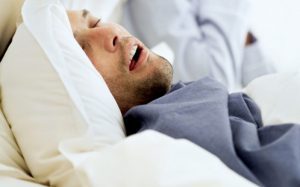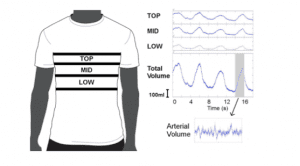
Local researchers believe an individual approach to sleep apnoea will offer real relief for many sufferers.
Obtrusive Sleep Apnoea (OSA) is a condition that affects around nine per cent of the world’s adult population, according to research from the Australian Sleep Health Foundation.
OSA poses serious health concerns with sufferers being more prone to depression, obesity and cardiovascular disease.
But now there’s hope lasting relief is in sight.
A research grant worth almost $3 million has been awarded to the MARCS Institute for Brain, Behaviour and Development (Western Sydney University), and colleagues to develop a non-obtrusive and personalised treatment option for people who suffer from OSA.
The grant was awarded under the federal government’s Cooperative Research Centres – Projects program and contributes to a $10.7 million project budget.
The personalised treatment being developed utilises existing MARCS Institute technology designed by Dr Gaetano Gargiulo and Dr Paul Breen, who are part of the Biomedical Engineering and Neuroscience Program.
This system, called VitalCore, is an electrode-less, wearable device in the form a T-shirt that simultaneously monitors cardiac and respiratory function.
Dr Breen says the goal of the collaborative project was to develop a personalised treatment that was efficient, effective and much more comfortable to use.
This will ensure better compliance and better treatment overall.
“Noncompliance of sleep apnoea devices is a serious problem,” he said.
“At the moment there is no means of providing an ongoing optimization of treatment, and in addition, current devices are expensive and uncomfortable, so patients do not adhere to the therapy.
“Our technology will be used to address these issues by using a tailored suite of devices that suit the needs of the individual.”
Dr Gargiulo says using VitalCore as part of an integrated approach to the treatment of sleep apnoea was revolutionary in that it allowed for continued monitoring of cardiac and respiratory function, which then used that recorded bio-data to optimise a patient’s treatment based on how their body responded.
“This project offers an incredible opportunity to translate one of our applied research techniques into a real world setting,” he said.
“We are honoured to be part of a project that gives back to the community in the form of an inexpensive and effective device that aids this sleep disorder.”
 This project is being completed in collaboration with Oventus Medical, Medical Monitoring Solutions, CSIRO, Western Sydney University and Neuroscience Research Australia.
This project is being completed in collaboration with Oventus Medical, Medical Monitoring Solutions, CSIRO, Western Sydney University and Neuroscience Research Australia.
The three year project is due to begin in April.
Oventus Medical CEO Neil Anderson said he was proud to be the lead participant in this important CRC-P project.
“We believe that there is a large global opportunity for easier, better and more personalised therapy for people with sleep apnoea,” he said.
“The grant will focus on new technologies evaluated in the recently completed pilot trial. These early results indicated that our appliances, with an airway, may be a viable alternative for many patients.
“It also allows us to evaluate an innovative monitoring technology from Western Sydney University and Medical Monitoring Solutions that can be used at relatively low cost, for treatment optimisation and clinical feedback.”

THis is great news as most people dont know the serious effect of Sleep apnoea. I have suffered from it for some 30 years and have had to wear a mask to sleep. I am sure that without this I would have had a heart attack years ago. however the mask did affect my other bedroom activites.
I think you mean Obstructive Sleep Apnoea?